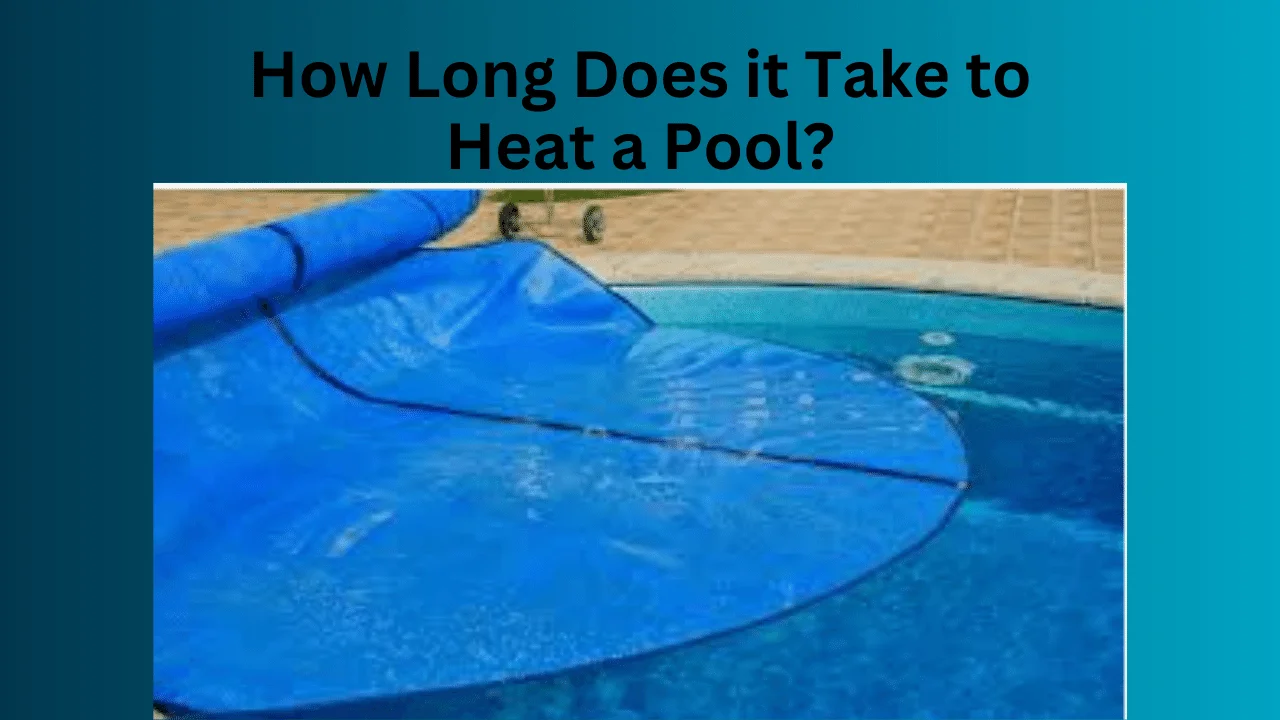There are a lot of technical, scientific, and environmental considerations when heating a pool. A number of factors, including the pool’s size, the kind of heater used, and the weather outside, can significantly affect How Long Does It Take To Heat A Pool? Swimming pool owners and enthusiasts will find this article an invaluable resource for understanding the ins and outs of pool heating and developing effective strategies for controlling the temperature of their pools.
Understanding Pool Heating
Types of Pool Heaters
There is a wide range of pool heaters available, each with its own set of features and degrees of efficiency. Solar panels, electric heat pumps, and gas heaters are the most typical pool heaters. Gas heaters are perfect for making quick temperature changes because of how quickly they heat up. Despite their slower initial performance, electric heat pumps end up saving money because of how efficient they are. An eco-friendly option is to use solar panels, which slowly raise the water’s temperature by harnessing the sun’s rays.
Pool Size and Volume
The amount of time needed to heat the pool is heavily dependent on its size. Because there is a higher volume of water in larger pools, more energy is needed to heat them. Another factor affecting heat loss is the pool’s surface area; a larger surface area allows heat to dissipate into the surrounding environment more quickly. When choosing a heating system and estimating how long it will take to heat up, knowing the volume and surface area is helpful.
Initial and Desired Temperatures
What matters most for the heating duration is the temperature differential between the starting water and the target temperature. It takes more effort and time to bridge a larger gap. The heating time varies from season to season because seasonal changes impact the starting temperature of the pool water.
Environmental Conditions
The efficiency of pool heating can be greatly affected by environmental factors like wind speed, air temperature, and solar exposure. On days with high winds, heat loss through evaporation is more likely, but when the sun is shining, the pool water will warm up naturally, reducing the need for artificial heating.
Heating Method Efficiency
Different heating methods have varying degrees of efficiency. Although gas heaters can heat the pool rapidly, they are more expensive to operate and produce more greenhouse gas. Electric heaters are more efficient and cost less to operate, but they heat up more slowly. Although solar heating relies heavily on the availability of sunlight to be effective, it is the most eco-friendly choice.
Calculating Heating Time for Your Pool
Using a Pool Heating Time Calculator
By entering details like pool size, target temperature rise, and heater type, a pool heating time calculator can produce a more precise estimate. In order to provide a rough estimate, these tools typically look at typical environmental factors; they can then be fine-tuned using current weather conditions.
Factors Affecting Heating Time
The amount of time needed to heat a pool is affected by a number of other variables. For example, whether or not the pool is covered, how well the circulation system works, and how well the pool insulates. A pool cover and good insulation can cut down on heat loss, which means less time spent heating the pool.
Real-Life Examples
To better grasp how these factors manifest in different contexts, it can be helpful to look at illustrative examples of pools, ranging from tiny private pools to massive public pools. For optimal heating time, these examples can also show how effective it is to combine heating methods, like a solar cover and a gas heater.
Expert Tips and Tricks
Practical advice on lowering heating time and increasing heating efficiency can be gleaned from the insights of industry experts. Timing heating operations optimally (e.g., heating overnight when power prices may be lower) or performing routine maintenance on the heating system to guarantee it operates at peak efficiency are two examples of possible suggestions.
Maintenance and Upkeep of Heating Systems
Pool heating systems require regular maintenance to ensure they last and work efficiently. Common heater maintenance includes things like cleaning the filters, looking for leaks, and making sure the electrical connections are tight.
Pool Heating Efficiency
Efficient Pool Heating
You can save a lot of money on energy bills and heat up your pool much faster by following these best practices. Heaters that use less energy, solar panels to supplement the heat, and pool covers to keep the heat in are all part of this.
Advancements in the Field of Pool Heating
To find ways to save energy and lessen our impact on the environment, it’s a good idea to look into the newest developments in pool heating technology. These include solar heating designs that are more advanced and smart heaters that can be controlled through smartphone apps.
Comparing Heating Costs
To choose the most economical and environmentally friendly heating option, it is helpful to calculate the total cost of ownership (TCO) over time, factoring in not only the initial investment but also the continuing cost of energy.
Environmental Impact Considerations
Anyone trying to lessen their impact on the environment would do well to familiarize themselves with the environmental effects of various heating methods. Here we would compare the renewable advantages of solar heating with the emissions caused by gas heaters.
Selecting the Right Pool Heater
Gas Heaters
When time is of the essence, many opt for gas heaters. Infrequent users will find them especially useful, since they enable pool owners to heat the pool as needed without having to wait for it to get hot. But gas can be expensive, particularly in colder regions or with larger pools.
Environmentally Friendly and Economical Electric Heat Pump
For a greener and cheaper option, electric heat pumps are a popular choice among homeowners. They work by drawing heat from the air and transferring it to the pool water; this process is slower than gas heaters, but it drastically cuts down on operating costs.
Eco-Friendly and Cost-Effective
To raise the temperature of a pool, solar pool heaters collect energy from the sun and convert it into heat. Solar heaters are the most eco-friendly option and can save a ton of money on energy bills; however, their effectiveness is highly location and sunlight dependent.
Technological Enhancements in Pool Heating
Automated Pool Heating Systems
Thermostatically efficient and energy-saving automated systems have recently been developed thanks to technological advancements. In order to optimize efficiency, these systems make use of smart thermostats and automated timers to regulate the heating elements according to the pool’s desired temperature and outside weather conditions.
Energy-Efficient Upgrades
Modern innovations have brought about more cost-effective and environmentally friendly heat pumps and gas heaters. Improvements such as high-efficiency boilers and variable-speed pumps can drastically reduce energy consumption without sacrificing heating performance.
Hybrid Heating Systems
Combining gas and solar panels or a heat pump and solar panels are two examples of hybrid systems that use multiple heating technologies. These systems optimize the pool’s energy consumption and provide more consistent heating in different weather conditions, allowing for flexibility in energy use.
Seasonal Pool Heating Strategies
Winter Heating Tactics
It can be difficult and expensive to keep a pool warm in the winter. To keep costs down, try using a high-quality thermal pool cover to trap heat and turning off the heater when it’s not in use.
Summer Optimization
During the summer, it becomes more important to keep the water at a comfortable temperature without letting it get too hot. Solar heating is especially beneficial in sunny climates because a solar cover helps retain heat during cooler nights and prevents excessive evaporation during hot days.
Transition Season Adjustments
Having a heating system that can adapt to different situations is useful in the spring and fall, when the weather can change drastically. Keeping the water at the ideal temperature while reducing energy consumption is possible with the help of a smart controller that can adapt settings according to daily weather changes.
Future Trends in Pool Heating
Pool owners can get a sneak peek at potential innovations like geothermal heating or heat pump technology advancements by predicting future trends in pool heating and market directions.
FAQs
Q: How quickly can a gas heater warm a pool?
A gas heater can raise the pool temperature by about 1-2 degrees Fahrenheit per hour for an average-sized pool.
Q: Are solar pool heaters effective in cloudy weather?
Solar pool heaters are less effective in cloudy weather as they require sunlight to operate efficiently, but they can still provide some heating benefit depending on the level of cloud cover.
Q: What temperature should I set my pool heater to in winter?
It is typically recommended to set your pool heater between 78°F and 82°F for comfortable swimming, even in winter.
Q: How can I reduce the cost of heating my pool?
Installing a pool cover, using energy-efficient heaters, and heating the pool during off-peak hours can significantly reduce heating costs.
Q: How often should I heat my pool to maintain a comfortable temperature?
This depends on usage and weather conditions, but generally, maintaining a constant temperature when the pool is in use and reducing heating when it is not can help manage comfort and costs effectively.
Conclusion
To make sure their pool is always warm enough for a pleasant swim, pool owners can benefit from this in-depth look at the dynamics of pool heating, including considerations like the type of heating system, size of the pool, and environmental factors. This exploration not only informs them of the options but also gives them the power to choose the one that works best for them. Additionally, understanding factors like How Long Does it Take to Heat a Pool? can help them plan and optimize their pool heating strategy.

Shannon Reyes is a seasoned writer with a knack for crafting engaging blogs on a variety of service industries, including plumbing, cleansing, moving, pest control, and roofing. With a keen eye for detail and a passion for helping readers navigate complex topics, Shannon brings her expertise to life through informative and accessible content.












Thanks for sharing. I read many of your blog posts, cool, your blog is very good.
Your article helped me a lot, is there any more related content? Thanks!
I don’t think the title of your article matches the content lol. Just kidding, mainly because I had some doubts after reading the article. https://accounts.binance.info/da-DK/register-person?ref=V3MG69RO
I don’t think the title of your article matches the content lol. Just kidding, mainly because I had some doubts after reading the article. https://www.binance.info/es-MX/register?ref=GJY4VW8W
Your point of view caught my eye and was very interesting. Thanks. I have a question for you. https://accounts.binance.com/ur/register?ref=SZSSS70P
Your article helped me a lot, is there any more related content? Thanks!
Thanks for sharing. I read many of your blog posts, cool, your blog is very good.